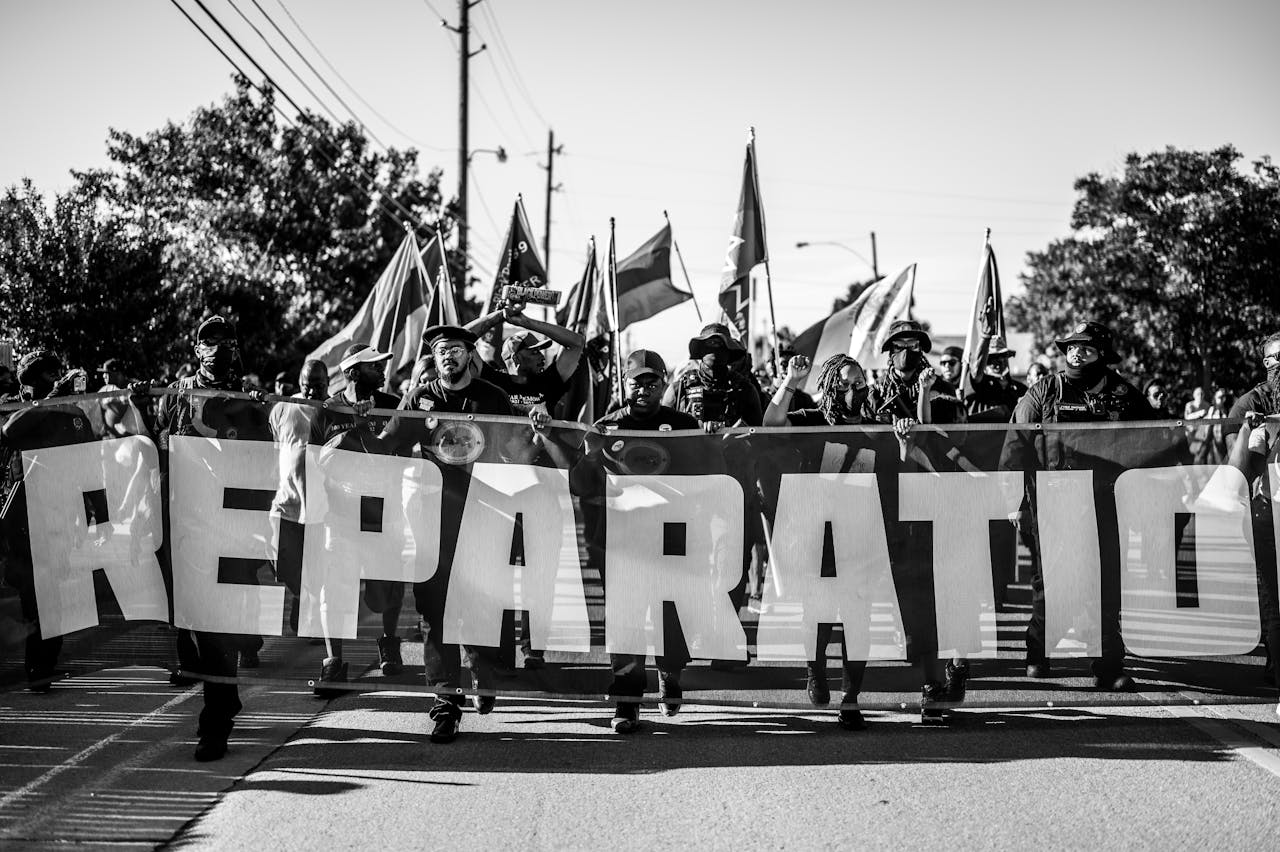
February 18, 2024
Georgia Legislative Black Caucus Take Steps Toward Reparations
Reparations efforts in Georgia gain traction despite political challenges.
After officially creating its Reparations Task Force in 2021, Fulton County is finally moving ahead with its plan to study reparations for descendants of people who were either enslaved or lived under Jim Crow. According to WABE, the City of Atlanta established a commission to study reparations in November 2023, and members of the Georgia Legislative Black Caucus have planned a “Reparations Day” for Feb. 15 so they can discuss issues related to reparations in Georgia.
There have been several initiatives across the country aimed at taking action on reparations, spurred on in part by the 2020 murder of George Floyd, most recently, California’s first in the country’s state reparations bills. Because there has been virtually no action on reparations at the federal level, the efforts have been increasing at the local and state levels.
Linda Mann, the co-founder of the African American Redress Network, a network that tracks reparations efforts in the United States, told WABE that although the bills intended to address reparations are passing, many of the bills don’t have any money attached to them. “Bills are being passed, or these task forces are being passed,” said Mann. “But a lot of them are being passed without any money, and that’s a huge issue. Because they’re being tasked to do actual research — significant research, actually.”
Fulton’s effort is different; however, their task force’s budget will fund administrative duties, town hall meetings, and hiring researchers for the required studies. According to Morehouse assistant professor and the chair of Fulton’s task force, Karcheik Sims-Alvarado says that informing the public of the history of America is an important part of the process, telling WABE, “A large part of that has to do with education,” said Sims-Alvarado. “Being informed about what it is that we’re doing. And also being informed about the history of slavery and Jim Crow.”
Part of that history involves the history of what happened to Macedonia Park, an all-Black enclave that popped up after racist incidents in Forsyth County. However, white residents in the areas around the area had a problem with this arrangement, resulting in a bill designed to “address the ‘Negro Section.” After the white residents kept complaining, the Board of Commissioners started buying the area out and displacing the Black residents, similar to what happened in Palm Springs, California. WABE reported that the Fulton County Task Force will examine this history further as it completes its inquiry.
According to Marcus Coleman, the Task Force vice chair, the task force has the potential to create more momentum for similar initiatives in other Georgia counties. “Who doesn’t want to be involved in the main problem of race relations as it relates to inequities, disparities,” said Coleman. “The Fulton County reparations task force is going to do nothing but go up from here. [We] really set precedents and set the tone and the blueprint for other counties to follow what we’re doing here.”
However, some are wary of how the political climate in Georgia is different from that in California, as State Rep. Carl Gilliard and State Rep. Roger Bruce intimated that they will need at least some Republican support to make reparations a reality because the Republicans control the levers of power in the Peach State. Bruce said that after speaking to the Republican Speaker of the House, Jon Burns, about the bill, Burns suggested that companies could open more operations facilities in the inner city to give Black residents better job opportunities. Bruce told Capital B News that Burns’s suggestion wasn’t going to be enough on its own, “My response to him was that was a solution, but not the solution,” Bruce said. “The remedy is going to be different for different people, and that’s the purpose of the study commission, to look at all of the impact and then come up with multiple solutions that people should be able to choose from.”
Gilliard said that he believes it may take time to get the state on board with the reparations effort and that at least one Republican Georgia House member has voiced their support for the commission, but he would not say who it was. Gilliard said that the dialogue has to start so they can build a package out that will get by the Republicans. Republicans are generally opposed to cash payments for reparations. “It’s not going to come overnight,” Gilliard said. “It’s something that we’ve got to start the dialogue on and start to be able to craft…I believe all things are possible.”
RELATED CONTENT: California Makes Progress On Reparations But Leaves Out Cash Payments